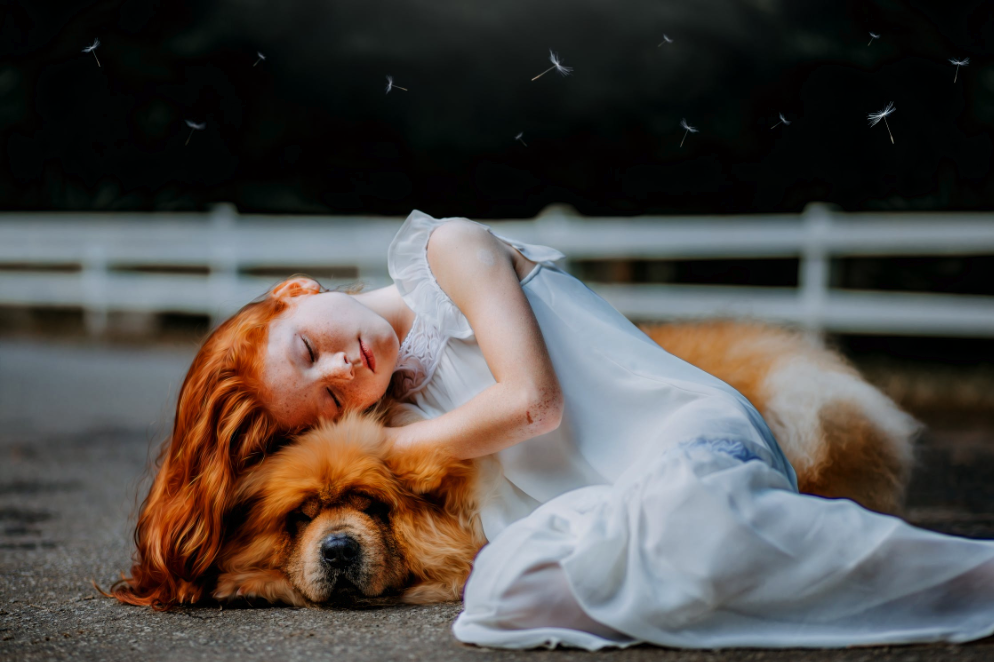Losing a beloved pet is devastating. They are such an important part of our daily lives. Many people think of their pets as best friends, running buddies, playmates and many, many more. The bonds we create with our fur babies are powerful. They’ve been with us through our ups and downs, happy and sad days. Which is why their loss affects us so much.
Grief is a natural emotion. Even though it’s far from pleasant, at some point in life, grief is inevitable. The truth is, grief comes with many difficult, unexplainable emotions. That’s why many people think that they are doing something wrong by grieving. However, grief is a healthy, but unpleasant, response everybody’s been through. Here’s how to cope with grief after the loss of a pet.
1. Grief doesn’t have an expiration date
Everyone goes through the process of grief differently. Some people feel better after a few weeks or months, while others still feel the effects of grief years after the traumatic event. As long as you’re not involved in unhealthy or life-threatening behaviours, there is no right way to grief. Take your time, everyone heals at a different pace.
Try not to succumb the society’s pressure to get over your negative emotions quickly. Don’t listen to those who claim that expressing your emotions is wrong. Trying to suppress them can only prolong the grieving process and make it hard for you to heal without emotional consequences. Grieving is hard enough without you and the society judging the way you go through the process. Keep in mind that grieving is the process that lasts.
2. Accept your feelings
Besides lengthening the grieving process, suppressing your feelings and emotions for the sake of others can damage your mental and physical health. Remember that it’s okay to feel a wide range of emotions. Grief isn’t only sadness or depression. Having mixed feelings about the event is natural.
Many people try to suppress the sadness and let the guilt or anger take over. This will prolong the process and harm your health. Whether you feel guilt, anger, sadness, despair or a lot of mixed feelings, try to accept them. Write down on a piece of paper how you feel. Try to come up with different coping sentences that will help you control your emotions and overcome their unpleasant aspects. Acceptance is a process just like grief. Allow yourself to feel.
3. Try to maintain a daily routine
Severe sadness and strong negative emotions can be dysfunctional. After the saddening and traumatic events, many people find it hard to keep up with daily activities and routines. Getting out of the bed and socialising may seem like a nightmare in the beginning, which is natural. However, if you notice that same behavioural pattern months after the event, it may be the sign of depression.
To prevent that from happening, besides accepting your feelings, you need to take your mind of the tragic event from time to time. That’s why maintaining a daily routine is important. Reward yourself whenever you complete a daily task to motivate yourself to keep moving forward. Make the bed, shower and take a brisk walk to boost the happy hormones in your body.
4. Find a support
Even though many people like to go through the grieving process alone, having someone that understands what you’re going through is essential to start the healing process. People with similar experiences are all around you. Try to talk to the family members or friends that can empathise and sympathise with your case.
Expressing your emotions is hard. So, find someone you trust to talk about grief. If you feel like your friends, family or partner won’t understand the way you feel, reach out to support groups or hotlines. Whether you visit an actual support group or join a social media page that talks about the subject, you’ll be surrounded by people who understand the way you feel. Expressing your emotions is the right way to the healing process.
5. Organise a memorial ceremony
Holding a service or memorial ceremony is the best way to celebrate your beloved pet’s life. Your furry companion had a wonderful life filled with love and joy which is worth celebrating and remembering. Ask friends or family to help you host a memorial ceremony for the deceased pet. It needs to be meaningful for you to heal. Going through the process of creating a ceremony or performing a ritual which can involve a pet urn can help you process this transition.
Ask friends and family who got to spend time with your four-legged friend to tell lovely or funny stories or anecdotes they’ve got to experience with him. To enhance the importance of your beloved pet in your life, you can place photographs, candles and delicate sympathy flowers around the room. Flower arrangements are the best way to honour someone’s life and express your sadness and sympathy. Sympathy flower arrangements are the perfect gift you can receive from your family and friends if you’re going through the grieving process.
6. Volunteer
The truth is, losing a pet leaves a hole in your life and a wound in your heart. To fill that hole and heal that wound you need to let the time do its thing. Even though you miss your dear pet, getting a new one to replace it simply shouldn’t be the option while you’re going through the process of grief. The new pet needs a dedicated owner and you have to accept that you might not be ready for another commitment yet.
Instead of that, you can help other pets and abounded animals by volunteering. There are many amazing benefits and reasons to volunteer at your local pet shelter. You’ll be helping out other animals while feeling great that you’re doing something useful for our furry mates and society. In addition to that, you’ll get to spend time with those animals and temporarily fill the empty hole in your life.
Conclusion
Going through the process of grief can be hopeless and depressing at times. Your pet was a huge part of your life and you did everything you could to keep it happy and healthy. Soon those unpleasant emotions of grief will be replaced with wonderful memories you have of your pet. Remembering them is the best way to honour their lives.




